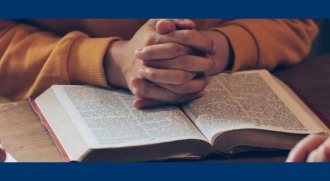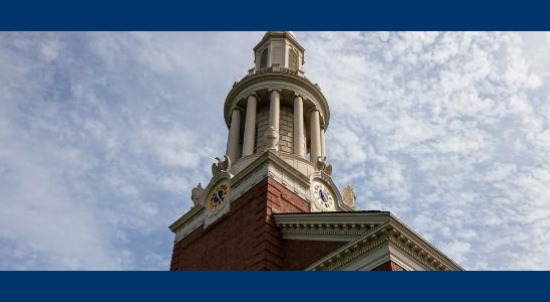
Women in the Bible
Published: Spring 2024
Description
Reading about the women in the Bible reveals a great deal more than simply the stories of a few individuals. Through the women’s trials and triumphs, the text offers various (sometimes contradictory) pictures of gender, family life, and relationships. Our modern understanding of gender may not translate directly onto the functions of gender in the Bible.
What are our pre-conceptions about gender in the time of the Hebrew Bible and in the Greco-Roman world? We may imagine that ancient women were universally oppressed or powerless, relegated to their roles as wives and mothers. This unit challenges these pre-conceived ideas as it seeks to understand the many roles women hold in biblical stories. We will read the stories with special attention to the power dynamics, including those surrounding gender, enslavement, and empire.
It is important to remember that these women’s stories do not necessarily reveal what was normal or even ideal about gender in the ancient Near East or the Greco-Roman world. Instead, they show us glimpses of those worlds from which the authors of the texts made meaning.
“Women in the Bible” sheds new light on familiar characters like Mary Magdalene in the New Testament and Sarah, Abraham’s wife in the Hebrew Bible. It also studies characters who are less well known to many Bible readers, such as the city of Babylon, styled as a whore in the Book of Revelation. Through the stories of these women, discover how gender can inform your reading as you explore how these stories relate to your own faith journey.
Course Takeaways
- Delve into the stories of Sarah, Tamar, and Women Warriors, shedding light on their roles and significance in biblical narratives.
- Examine the portrayals of Mary, Mary Magdalene, and the Woman at the Well, uncovering their diverse experiences and contributions in the New Testament.
- Explore themes of biblical marriage, desire, family dynamics, and women's roles in the early church, gaining insights into gender dynamics and societal norms in biblical times.
Meet the Instructors
 Professor Lin specializes in textual criticism, the Revelation of John, critical race theory, gender and sexuality, and immigration. Her book, The Erotic Life of Manuscripts (Oxford 2016), examines how metaphors of race, family, evolution, and genetic inheritance have shaped the goals and assumptions of New Testament textual criticism from the eighteenth century to the present.
Her forthcoming book, Immigration and Apocalypse: The Revelation of John in the History of American Immigration (Yale University Press), focuses on the use of Revelation in political discourse surrounding American immigration—in conceptions of America as the New Jerusalem and of unwanted immigrants as the filthy, idolatrous horde outside the city walls.
Professor Lin has been published in journals such as the Journal of Biblical Literature, Early Christianity, and TC: A Journal of Biblical Textual Criticism. She serves on the Steering Committee for the Ethnic Chinese Biblical Colloquium, as well as the New Testament Textual Criticism Section and the Bible in America Section of the Society of Biblical Literature. She also serves on the editorial board of the Journal of Biblical Literature. Professor Lin is a member of Pacific, Asian, and North American Asian Women in Theology and Ministry and of Studiorum Novi Testamenti Societas.
Biography
Professor Lin specializes in textual criticism, the Revelation of John, critical race theory, gender and sexuality, and immigration. Her book, The Erotic Life of Manuscripts (Oxford 2016), examines how metaphors of race, family, evolution, and genetic inheritance have shaped the goals and assumptions of New Testament textual criticism from the eighteenth century to the present.
Her forthcoming book, Immigration and Apocalypse: The Revelation of John in the History of American Immigration (Yale University Press), focuses on the use of Revelation in political discourse surrounding American immigration—in conceptions of America as the New Jerusalem and of unwanted immigrants as the filthy, idolatrous horde outside the city walls.
Professor Lin has been published in journals such as the Journal of Biblical Literature, Early Christianity, and TC: A Journal of Biblical Textual Criticism. She serves on the Steering Committee for the Ethnic Chinese Biblical Colloquium, as well as the New Testament Textual Criticism Section and the Bible in America Section of the Society of Biblical Literature. She also serves on the editorial board of the Journal of Biblical Literature. Professor Lin is a member of Pacific, Asian, and North American Asian Women in Theology and Ministry and of Studiorum Novi Testamenti Societas.
Biography
 Dr. Vayntrub’s areas of expertise include the Hebrew Bible, wisdom literature, biblical poetry and poetics, philology, and the history of biblical scholarship. She is especially interested in the Hebrew Bible’s genres and modes of discourse against the broader background of ancient Near Eastern literary production, and its reception in and impact on Western scholarship. Broadly, her work seeks to recover the values of ancient literary culture through the language of the texts and examines how these values were reshaped in their reception.
Dr. Vayntrub’s first book, Beyond Orality: Biblical Poetry on its Own Terms (Routledge, 2019), examines the modern scholarly history of theorizing biblical poetry and draws out the unresolved tension between theories about the oral genesis of biblical poetry and evidence that points to the the genre’s written origins. The book has been reviewed in Reading Religion and in panels at Yale, the British Association of Jewish Studies, and New York University and will be the subject of review panels at the Society of Biblical Literature (SBL) 2019 annual meeting and at the University of Pennsylvania. Her second book, Reframing Biblical Poetry (under contract with Yale University Press) argues that a character’s voice, deeds, and body shape the meaning of biblical texts. She has presented internationally, in keynote, and in named public lectures on her first and second book.
Dr. Vayntrub has authored nearly twenty articles and essays in edited volumes and in peer-reviewed journals such as Vetus Testamentum, Zeitschrift für die alttestamentliche Wissenschaft, Biblical Interpretation, Catholic Bible Quarterly, Hebrew Bible and Ancient Israel, and Harvard Theological Review. A number of her recent publications relate to her current book project, Seeking Eternity: Transmission and Mortal Anxiety in Biblical Literature, for which Dr. Vayntrub was awarded a 2019-2020 fellowship at the Katz Center for Advanced Judaic Studies at the University of Pennsylvania. The project focuses on notions of transmission and their relationship to human mortality in biblical and cognate literature.
She is founder and chair of the Philology in Hebrew Studies program unit at the Society of Biblical Literature Annual Meeting, and chair of the Hebrew Bible, History, and Archaeology program unit. She has organized conferences at Yale, Harvard University, Princeton University, and the Center for Hellenic Studies in Washington D.C. In collaboration with colleagues at UC Davis, UNC Chapel Hill, and the University of Oxford, Dr. Vayntrub directs Renewed Philology(link is external), an international working group of scholars in biblical studies whose work reflects critically on the intellectual frameworks of the reader that are brought to bear in philological practice.
Biography
Dr. Vayntrub’s areas of expertise include the Hebrew Bible, wisdom literature, biblical poetry and poetics, philology, and the history of biblical scholarship. She is especially interested in the Hebrew Bible’s genres and modes of discourse against the broader background of ancient Near Eastern literary production, and its reception in and impact on Western scholarship. Broadly, her work seeks to recover the values of ancient literary culture through the language of the texts and examines how these values were reshaped in their reception.
Dr. Vayntrub’s first book, Beyond Orality: Biblical Poetry on its Own Terms (Routledge, 2019), examines the modern scholarly history of theorizing biblical poetry and draws out the unresolved tension between theories about the oral genesis of biblical poetry and evidence that points to the the genre’s written origins. The book has been reviewed in Reading Religion and in panels at Yale, the British Association of Jewish Studies, and New York University and will be the subject of review panels at the Society of Biblical Literature (SBL) 2019 annual meeting and at the University of Pennsylvania. Her second book, Reframing Biblical Poetry (under contract with Yale University Press) argues that a character’s voice, deeds, and body shape the meaning of biblical texts. She has presented internationally, in keynote, and in named public lectures on her first and second book.
Dr. Vayntrub has authored nearly twenty articles and essays in edited volumes and in peer-reviewed journals such as Vetus Testamentum, Zeitschrift für die alttestamentliche Wissenschaft, Biblical Interpretation, Catholic Bible Quarterly, Hebrew Bible and Ancient Israel, and Harvard Theological Review. A number of her recent publications relate to her current book project, Seeking Eternity: Transmission and Mortal Anxiety in Biblical Literature, for which Dr. Vayntrub was awarded a 2019-2020 fellowship at the Katz Center for Advanced Judaic Studies at the University of Pennsylvania. The project focuses on notions of transmission and their relationship to human mortality in biblical and cognate literature.
She is founder and chair of the Philology in Hebrew Studies program unit at the Society of Biblical Literature Annual Meeting, and chair of the Hebrew Bible, History, and Archaeology program unit. She has organized conferences at Yale, Harvard University, Princeton University, and the Center for Hellenic Studies in Washington D.C. In collaboration with colleagues at UC Davis, UNC Chapel Hill, and the University of Oxford, Dr. Vayntrub directs Renewed Philology(link is external), an international working group of scholars in biblical studies whose work reflects critically on the intellectual frameworks of the reader that are brought to bear in philological practice.
Biography



